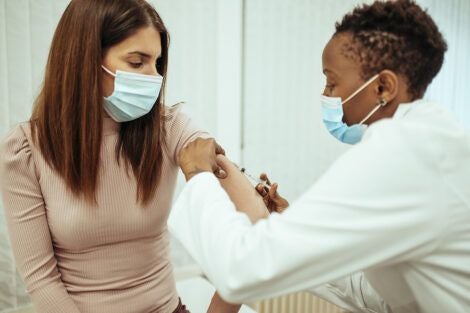CAUSALab investigates how to use data to support better decisions in medicine, public health, and policy
November 19, 2021—Whether it’s selecting a treatment to keep COVID-19 patients alive or determining the effectiveness of dietary guidelines, clinicians, policymakers, and patients must often sift through reams of information before making choices that impact health. Harvard T.H. Chan School of Public Health’s new CAUSALab, which held a launch event at the School’s Snyder Auditorium on November 5, aims to make those decisions easier.
The center was founded in 2021 under the direction of Miguel Hernán, Kolokotrones Professor of Biostatistics and Epidemiology. Its researchers develop actionable analyses using a discipline known as causal inference, which was first described in 1986 by James Robins, Mitchell L. and Robin LaFoley Dong Professor of Epidemiology. The work combines the tools of epidemiology with artificial intelligence techniques and data from health care databases, epidemiologic studies, and randomized trials to investigate efficacy and safety in medicine, public health, and policy.
At the launch event, Hernán described CAUSALab as “a center to learn what works.” He noted that the lab’s work is often used to support clinical or policy decisions, which is a responsibility that he and his colleagues take very seriously.
During a panel, researchers affiliated with the lab shared causal inference work related to decision-making during the COVID-19 pandemic. Barbra Dickerman, instructor in the Department of Epidemiology, discussed her investigation of the comparative effectiveness and safety of vaccines. Other featured studies focused on repurposing older drugs for COVID-19 treatment, and nonpharmacological interventions for COVID-19 prevention and treatment.
An afternoon panel featuring remarks by Robins highlighted approaches used in causal inference studies when data from randomized trials is not available.
Photo: iStock/bogdankosanovic
